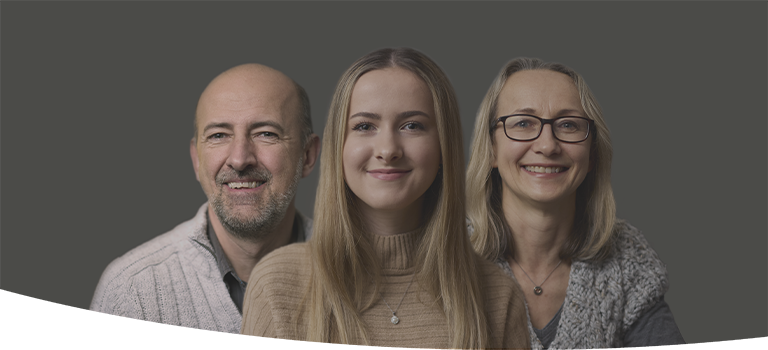Research Fund Journey to a cure for coeliac disease
Taking vital steps on the journey towards a cure for coeliac disease
Coeliac UK supports dedicated research projects seeking to understand coeliac disease and how to improve the lives of those impacted by the disease. We want to see improvements in prevention, diagnosis, support and treatment for this autoimmune condition - all part of our Journey to a Cure.
The Coeliac UK Research Fund allows restricted money to be raised to support these projects, all of which align to our ten top research priorities, and all looking at a part of the puzzle surrounding coeliac disease. Having the Research Fund enables us to create partnerships with key research teams, where each team can work simultaneously and collaboratively on different but linked priorities. The greater the size of the Research Fund, the more research we’ll be able to support – and the greater the chance of finding the piece that begins to unlock the whole puzzle. Find out more about projects we've already been able to fund.
Please if you can, give the Research Fund the boost it needs. Every pound you contribute will take us a little further on the journey to our ultimate goal – a cure for coeliac disease.
Donate to our Research Fund today
Our stories
Through research we believe we are firmly on the Journey to a Cure. We hope for a world where coeliac disease can be entirely prevented from occurring through generations of families, or by stopping the disease in its tracks. Until that is truly possible, research aims to move us towards a future where the disease has only minimal impact on the lives of those diagnosed.
The personal stories featured here highlight the need for research, why it is urgent and needs to happen now.
 |
Davage Family Exploring the genetic link Coeliac disease is more likely to be diagnosed in other family members. As a small child, daughter Cerys had no interest in food. She had bouts of diarrhoea, her stomach began to swell, her growth slowed. It was several years before they were asked about a family link to coeliac disease. This question opened the door for further investigations resulting in a confirmation of severe untreated coeliac disease. If we can learn more about the condition occurring in families then maybe we can learn how to stop it from happening altogether. Discover more about their story.
|
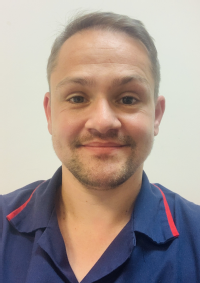 |
Adam Understanding the links to other autoimmune conditions Adam was diagnosed with type 1 diabetes aged 10 and then coeliac disease when he was 27. As a nurse, he has seen how research changes the way we can care for people and leads to completely different life experiences for patients. If we could understand how coeliac disease is linked to other autoimmune conditions, we can begin to learn how to treat more conditions – and to break those links. |
| Gill Neurological dysfunction in coeliac disease Gill’s coeliac disease was triggered around eight years ago. Symptoms included tingling in her lower limbs, balance and speech issues and fatigue. The disease has completely changed her life. We need to find the triggers to the development of coeliac disease. Do they determine when someone will develop coeliac disease and or predict how severe disease associated symptoms or complications will be? Discover more about Gill’s story.
|
|
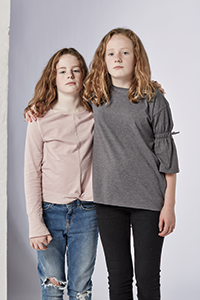 |
Phoebe and Ruby Different symptoms in twin sisters Twins Phoebe and Ruby, were diagnosed at separate times and the initial symptoms for each of them were very different. Phoebe had reflux and severe constipation whilst Ruby who was diagnosed later had skin rash and tummy issues. They have also been diagnosed with an autoimmune thyroid condition. Finding the triggers to developing coeliac disease would help us to determine when someone will develop coeliac disease and or to predict how severe their symptoms or complications will be. |
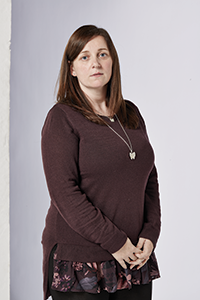 |
Kerry Neurological symptoms changed her life Kerry’s life has never been the same since she experienced the debilitating neurological symptoms of coeliac disease, which took hold and changed the course of her future. Kerry experiences speech difficulties and she has no control over the right side of her body. The former fitness fanatic had to give up her career plans to be a massage therapist and for others like her, the gluten free diet is not enough to help her manage her condition. Research could help us understand the spectrum of neurological forms of coeliac and disease and how neurological dysfunction develops. |
 |
Charlotte Misdiagnosed with IBS Charlotte struggled for years with misdiagnosed irritable bowel syndrome before finally being diagnosed with coeliac disease, but only after losing so much weight she went down four dress sizes. While she’s now put on weight, her dermatitis herpetiformis has not cleared yet. But it’s a struggle of managing a gluten free diet, especially on a limited budget, which makes it all the more challenging for this young mum of two, and makes her wish for a better future where a cure for coeliac would mean consideration of a gluten free diet is no longer necessary. |
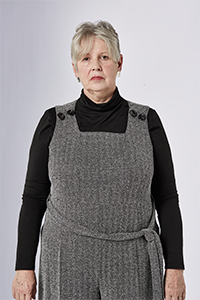 |
Pam Neurological impacts caused early retirement Along with the usual painful gastrointestinal issues caused by coeliac disease, Pam also suffered from severe fatigue; damage to her cerebellum the part of the brain responsible for co-ordination, balance and speech; some neuropathy causing pain and tingling in her lower limbs; problems reading; plus memory issues. Her condition caused her to take early retirement from the NHS. For Pam, research could see changes in the diagnosis and management of patients with neurological symptoms. |
 |
Vijay Life turned upside down by diagnosis Vijay suffered on and off for 18 months with ongoing symptoms of bloating, tiredness, feeling breathless, nausea and acid reflux, to name a few. It took several visits to the GP before finally being referred to a specialist. The diagnosis turned his life upside down and he found it very difficult to deal with. Vijay says that without the support of his wife, family and friends, the emotional challenge of dealing with the condition would have been much harder. Better support is needed for healthcare professionals to accurately diagnose and manage coeliac disease and other gluten related autoimmune conditions. |
Please if you can, give the Research Fund the boost it needs. Every pound you contribute will take us a little further on the journey to our ultimate goal – a cure for coeliac disease.
